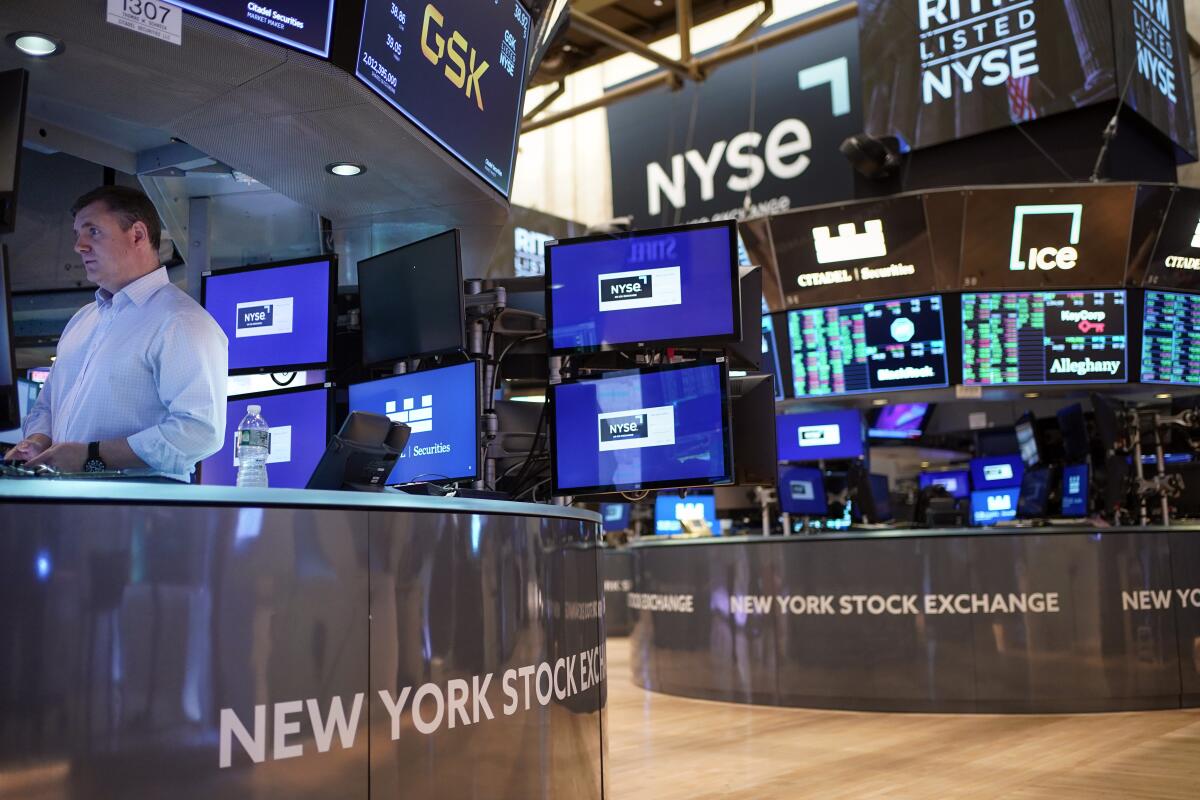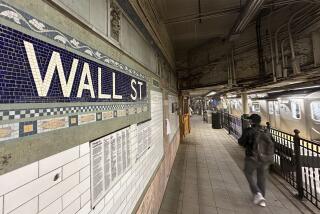Stocks fall; indexes slip deeper into the red for the week

Stocks gave up more ground Thursday, leaving major indexes on Wall Street deeper in the red for the week.
The Standard & Poor’s 500 fell 1.1% after another wobbly day of trading. The benchmark index is now down 4.1% for the week after the biggest pullback for the market in more than two years Tuesday.
The Dow Jones industrial average fell 0.6% and the Nasdaq composite slid 1.4%. The Russell 2000 index of smaller companies closed 0.7% lower.
New retail sales data gave a mixed view of how consumers are coping with the hottest inflation in four decades. The government report showed that retail sales rose an unexpected 0.3% in August after falling 0.4% in July. Inflation hurt several areas of spending, though, with business at restaurants still growing but at a slower pace, while furniture and online sales fell.
Consumer spending has been a strong point in the broader economy, along with employment, as inflation continues to squeeze businesses and consumers.
Economically speaking, the vibes are off. Here’s what you should be doing with your money, according to financial experts.
High prices and the Federal Reserve’s aggressive plan to raise interest rates as a solution remain Wall Street’s main focuses. Investors also worry the Fed’s rate increases will tip the economy into a recession that could hurt company earnings.
“The market has to contend with rapidly tightening monetary conditions, which tend to take time to flow through to the real economy,” said Bill Merz, head of capital market research at U.S. Bank Wealth Management. “There’s an element to this of uncertainty around just how much additional on-the-ground impact will be felt in the real economy by restrictive monetary policy, and I don’t think we really know that yet.”
The S&P 500 fell 44.66 points to 3,901.35. The Dow dropped 173.27 points to 30,961.82. The Nasdaq shed 167.32 points to close at 11,552.36. The Russell 2000 gave up 13.23 points and ended at 1,825.23.
Technology stocks were among the biggest weights on the broader market. Adobe slumped 16.8%, the largest drop among S&P 500 stocks, after the software maker announced a $20-billion acquisition of a design company and issued a disappointing revenue forecast.
U.S. crude oil prices fell 3.8% and weighed on energy stocks. Hess fell 2.5%.
When organizers of the Future Proof wealth festival decided to create their own event, they took inspiration from Coachella and South by Southwest
Railroad operators mostly edged higher after a tentative labor agreement was reached, averting a strike across the country that could have been devastating to the economy. Union Pacific rose 0.2% and Norfolk Southern gained 0.3%. CSX fell 3.4%.
Bond yields rose. The yield on the 10-year Treasury, which helps dictate where mortgages and rates for other loans are heading, rose to 3.45% from 3.40% late Wednesday. The yield on the two-year Treasury rose to 3.87% from 3.79%.
A hotter-than-expected August report on consumer prices Tuesday spooked the market and dashed hopes that the Fed might consider easing its rate increases. It was followed Wednesday by a report that wholesale prices are still rising.
Investors worry rate hikes by the Fed could go too far in slowing the U.S. economy and send it into a recession. The central bank has already raised its benchmark interest rate four times this year, with the last two increases by three-quarters of a percentage point.
Traders now see a 1-in-5 chance the Fed will raise its benchmark rate by a full percentage point next week, quadruple the usual move, according to CME Group.
“We haven’t had any data so far that suggests the Fed has what it needs to start moderating their positioning, so for the time being, we still anticipate aggressive monetary policy and aggressive tightening,” Merz said.
More to Read
Inside the business of entertainment
The Wide Shot brings you news, analysis and insights on everything from streaming wars to production — and what it all means for the future.
You may occasionally receive promotional content from the Los Angeles Times.












